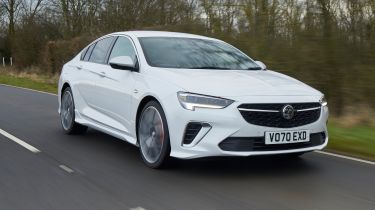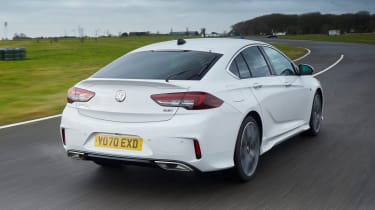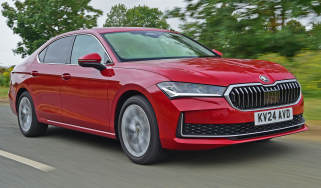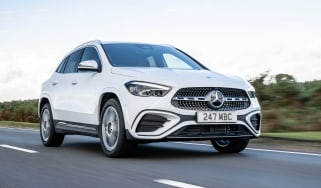Vauxhall Insignia hatchback (2017-2022) - MPG, running costs & CO2
Strong fuel economy and a vast dealer network make the Vauxhall Insignia easy to live with, but company-car drivers might look elsewhere
Cars are products that – in general terms – are hugely improved with every update. The Vauxhall Insignia is an excellent example of this upward trend. It’s lighter than the previous generation and its engines are more efficient, which means it’ll be cheap to run. It’s no longer cheap to buy, though, since Vauxhall has withdrawn previous entry-level trims.
Vauxhall Insignia MPG & CO2
Company-car tax is likely to be the make-or-break point for the Insignia, as the vast majority of sales will go to fleet buyers; the news here is no longer rosy.
Because tax obligations for company users are determined by the car’s price combined with its CO2 emissions, the Insignia’s previously low list price worked in its favour. The Insignia engine with the lowest CO2 emissions – the 120bhp three-cylinder turbocharged 1.5-litre diesel - is capable of 60.1mpg while emitting 122-144g/km, which puts it in the 28-30% BiK bands. Choose an automatic gearbox and fuel economy drops to 56.5mpg.
Every facelifted diesel Insignia is now RDE2 compliant, meaning they are exempt from the additional 4% Benefit-in-Kind (BiK) surcharge.
The Volkswagen Passat and Skoda Superb are available with standard petrol and diesel engines that occupy similar BiK brackets, with their respective plug-in hybrid models sitting in much lower BiK bandings. However, both of these rivals' list prices are significantly higher than the Insignia’s, with the PHEV versions costing a third or more to buy at least.
More reviews
In-depth reviews
- Vauxhall Insignia hatchback review (2017-2022)
- Vauxhall Insignia Sports Tourer estate (2017-2019)
- Vauxhall Insignia Country Tourer estate (2017-2019)
- Vauxhall Insignia hatchback (2008-2017)
- Vauxhall Insignia Country Tourer (2013-2015)
- Vauxhall Insignia Sports Tourer estate (2008-2017)
- Vauxhall Insignia VXR hatchback (2009-2017)
Insignia buyers can also choose a 197bhp 2.0-litre petrol engine, equipped with a nine-speed automatic gearbox. This engine officially returns up to 38.2mpg, while the previous 227bhp version, reserved for the range-topping four-wheel drive GSi model, is almost as efficient, managing up to 35.3mpg. Emissions for the petrol engines range from 167g/km to 200g/km, placing them in the top BiK band for company-car drivers.
According to Vauxhall, opting for the 172bhp 2.0-litre four-cylinder diesel engine delivers slightly better fuel economy than the 1.5, with the manual capable of 61.4mpg, which falls to 56.5mpg when you opt for an auto. Emissions range from 120g/km for the most basic version with a manual gearbox, rising to 149g/km for a higher trim model with an automatic.
One word of warning: if the facelifted Insignia is like its predecessor, expect secondhand values to be somewhat unimpressive – although this won’t be of concern to company-car customers.
Every version of the Insignia will cost the standard rate a year in road tax, but if you go for the top-of-the-range model with a powerful engine, you’ll find yourself over the £40,000 barrier and liable for a tax bill of nearly £500 in years 2-6.
Insurance group
The 1.5-litre entry-level diesel Insignia with 120bhp starts in group 17, while the 2.0-litre 172bhp version sits six places higher in group 23. The 197bhp petrol, meanwhile, starts from group 27, with the range-topping 227bhp GSi model placed in group 30.
Warranty
Vauxhall’s three-year/60,000-mile warranty is average and nowhere near as generous as the five-year guarantees offered by Hyundai and Toyota, nor the seven-year policy provided by Kia.
Servicing
The Insignia requires servicing every 20,000 miles or once a year, whichever comes first, and Vauxhall’s fixed-price servicing packages and maintenance jobs should make taking care of the Insignia an easy and reasonably affordable process. Vauxhall Care costs around £20 per month, including three services, three years of roadside assistance and the first MOT.












